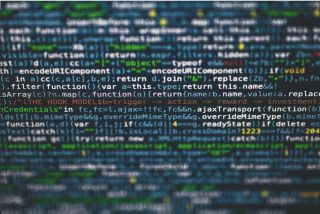Artificial Intelligence
Alexa, I'm Not Feeling Well
Personal Perspective: How long before AI displaces humans in healthcare?
Updated January 7, 2024 Reviewed by Tyler Woods
Key points
- Artificial intelligence will eventually outperform humans in medical/psychological diagnostics and treatment.
- The role of human beings is destined to change in the future healthcare universe.
- Humans will need to demonstrate added value to maintain their professional roles in healthcare delivery.

I’ve taught and advised healthcare pre-professionals for decades and have always extolled the virtues and rewards of a career in the industry. Of late, however, I fear I may be subjecting them to a great bait and switch.
Historically, there was a largely unspoken understanding that if a select group of men and women really ground it out in college and then really ground it out in graduate school, they could then really grind it out in a healthcare career and society would reward them with guaranteed employment, approbation, and a better-than-average income. Now, I’m not so sure.
AI as my primary care provider.
How long will it be before the following scenario becomes common across the nation:
“Alexa, I’m not feeling so well today.”
A pleasant voice responds, “I’m sorry to hear that, Gary. What seems to be the problem?”

Alexa and I then run through a series of questions about my symptoms. It will already know well my past medical history, my medications, my recent activities (from my watch), my vital signs (ditto), my nutritional and substance intake (through my purchases), and much of my other healthy and non-healthy habits and behaviors (through cookies). After checking all these factors against a mass database, I’m asked to put my finger into a sensor. The sensor analyzes an array of body chemistries—perhaps even screening for indicators of various pathogens. Soon, it arrives at a diagnosis and prescribes a couple of medications. The prescription is fired off to a pharmaceutical 3-D printer—perhaps in a nearby supermarket or maybe even in my home. Then, when I'm all better, my clinical course is automatically registered into the database, further sharpening Alexa’s diagnostic and therapeutic acumen.
But where is the doctor?
Now, here’s the rub. Where's the doctor? In fact, what need is there for a doctor? And, if I’m hospitalized, the same diagnostic and therapeutic algorithms will be employed. Perhaps a series of non-invasive tests and scans will be ordered and interpreted by the hospital’s linked-in system. Again, treatments will be initiated and my course will be entered into the data bank. Some technicians—with rudimentary medical training—might be necessary, to do a neuro-exam or place some "lines," but how many fully-schooled healthcare professionals will be required—particularly if we leave surgeons and other proceduralists out of the discussion for now?

Far-fetched? The bulk of healthcare professionals currently opining on the subject seem to think so, but I believe they're whistling past the graveyard. AI already outperforms us in certain diagnostic and therapeutic challenges, and it’s in its infancy. With the combination of its rapidly expanding capabilities, mega-data analytics, and accelerating sensor technology, do we truly believe we humans will be able to compete with it in any medical/psychological problem solving challenge?
Ah, but human touch.
But what about the much-vaunted human touch and human connection that has been the cornerstone of healthcare delivery for so long? Well, when was the last time the majority of people felt they experienced great human connection interfacing with their providers? I know I personally was reduced to routinely double-booking my fifteen minute clinic slots, all the while trying to appease the insatiable electronic medical record. Yeah, lots of real connection going on there.
Time after time, quizzing my students on whether they would prefer a physician with irreproachable clinical acumen and technical skills but poor bedside manner or a competent one (let’s say, middle of the pack) with sensational bedside manner, they choose the former.
And, let’s face it, we’re creatures of convenience. We choose ATM’s, self-check-out lanes, online shopping, and drive-through fast food service over their slower, more human-interfacing counterparts. As a matter of fact, I would venture that we choose many such experiences specifically for their avoidance of other human beings. When, for example, was the last time you truly enjoyed an over-indulgent waiter at a restaurant? Furthermore, when our mega-corporations recognize they can provide equal or better medical care for their employees at a fraction of the cost, do we think they will fret for one moment about the loss of human contact? And don’t get me started on the hospital systems and insurance companies.

Will we even notice the lack of human interaction?
We anthropomorphize many inanimate entities in our lives—even ones that don’t talk. We readily affix personalities to them, even treat them with reverence and love. I mean, I adore my Jeep Wrangler. And I’ve noticed that when I interact with an Alexa-like system, I’m polite and respectful to it. Systems that inject a little playfulness into the interactions actually make me laugh and join in on the fun. What is to stop us from "connecting" with our AI healthcare providers?
Studies have indicated that various computerized healthcare interface systems have been well-received by patients—including human-less emotional support programs. Perhaps it’s easier to reveal one’s troubles to a computer than face-to-face to another human being. I'm not convinced that the lack of a fallible, perhaps irascible, and guaranteed-to-be hurried and harried human in our medical transactions will necessarily alter the experiences for the worse.
Are we humans a value-added proposition?
So, what do I tell my students? Keep breaking your intellectual backs so you can be replaced by technology? Or, at best, be relegated to a hand-holding role? And who's going to shell out $100,000 to $300,000 a year to keep them there in such a role, anyway?
If healthcare professionals are to continue plying their trade in the coming decades (in a traditional sense, at least), they are going to have to figure out very quickly what added value they bring to the table. And to be dispassionately realistic about said added value. Is the human touch/connection thing truly something of worth? Will it be so for generation alpha?
References
Lucas, G., et al. (2014) It’s only a computer: Virtual humans increase willingness to disclose. Computers and Human Behavior. Volume 37. Elsevier
Wright, J., Mishkind, M. (2020) Computer-Assisted CBT and Mobile Apps for Depression: Assessment and Integration Into Clinical Care. Psychiatry Online:24 Apr 2020https://doi.org/10.1176/appi.focus.20190044
Wright, J, et al, (2022) Effect of Computer-Assisted Cognitive Behavior Therapy vs Usual Care on Depression Among Adults in Primary Care. A Randomized Clinical Trial. JAMA Network. JAMA Netw Open. 2022;5(2):e2146716. doi:10.1001/jamanetworkopen.2021.46716
Berg,H. et al. (2023) ChatGPT and Generating a Differential Diagnosis Early in an Emergency Department Presentation. Annals of Emergency Medicine: September 09, 2023DOI:https://doi.org/10.1016/j.annemergmed.2023.08.003
Tidy, J. (2024) Character.ai: Young people turning to AI therapist bots. BBC Online. 4th January 2024,


